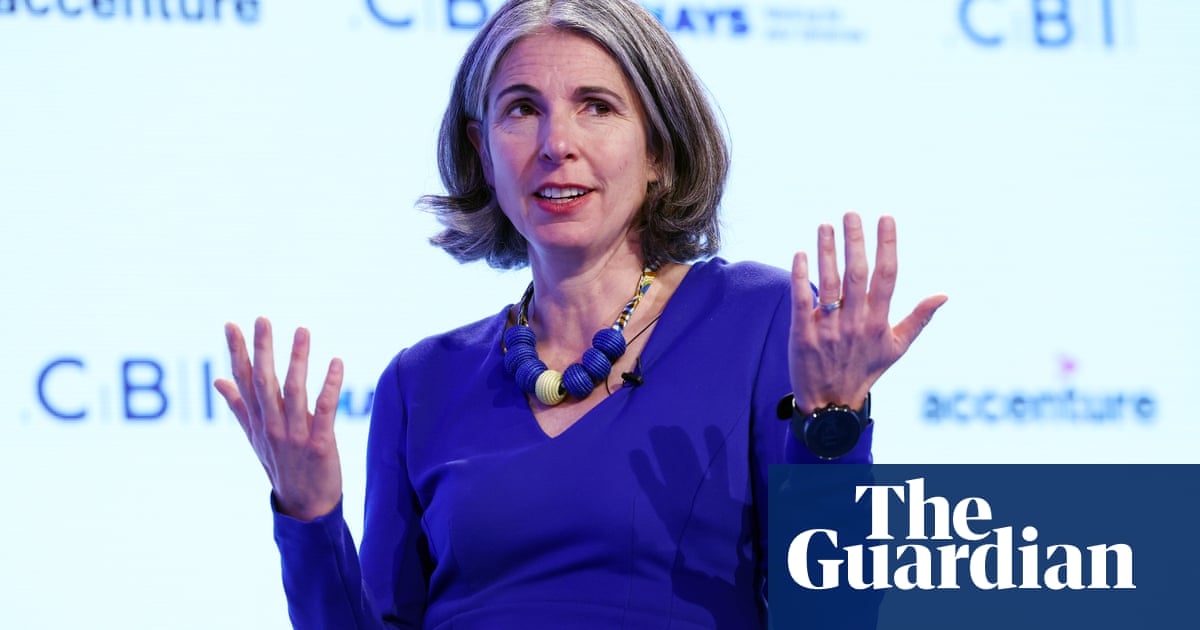
Less than a third of the Confederation of British Industry’s remaining members backed the business lobby group at last week’s crunch vote on its survival, it has emerged.
The confidence vote followed a series of sexual misconduct allegations that prompted several companies including John Lewis and NatWest to terminate their membership of the CBI.
The revelation of the low turnout at such a critical vote emerged as leaders from the group gave evidence to MPs on the business and trade select committee on Tuesday, as parliament weighs its links with the body. The CBI’s engagement with the government and the Labour party is still largely suspended.
In an attempt to win back its lobbying role, the CBI last week claimed it was supported by 93% of its membership. However, only 371 votes were cast in favour of a motion of confidence out of a membership of more than 1,200, it was revealed on Tuesday.
The lobby group had repeatedly refused to tell journalists the turnout at the time but it claimed a “strong mandate from membership with 93% voting in favour” after the emergency general meeting.
After questions from MPs, it is now clear this was based on a low turnout.
Rain Newton-Smith, the newly installed director general, said the body had a direct membership of 1,200 corporates and 120 trade associations who had been eligible to vote.
This means there was a turnout of about 28%, with two-thirds of its membership failing to vote at all on a resolution asking if they had confidence in the business group’s ability to reform itself.
The vote followed a Guardian investigation that revealed more than a dozen women claimed to have been victims of various forms of sexual misconduct by senior figures at the CBI.
This included an account from a woman who alleged she was raped at a staff party on a boat on the Thames, and another who claimed she was raped by colleagues when she worked at a CBI office overseas.
“Looking at some of the allegations in the Guardian, what we did look into was this issue of whether women always felt supported in raising their concerns,” Newton-Smith said.
“Why were some women raising concerns with the media rather than coming to us directly within the organisation? That’s what we’re determined to fix.”
Members were able to vote online and did not need to attend the in-person meeting to take part.
Newton-Smith refused to say how many members the organisation had lost or how many it had before the crisis. Instead, the director general said: “A proportion of members have paused their activity but the vast majority are still with us. Around a third of our current members voted at the [extraordinary general meeting].”
Significant operational questions still face the CBI, such as how many staff it may have to make redundant after the loss of several blue-chip corporate members. Membership fees make up the vast bulk – about £22m – of the CBI’s £25m income.
Newton-Smith was unsure of when there would be another CBI annual conference, saying: “We need to think about the right moment for that.”
It was reported that several sponsors had withdrawn from the expected November conference.
Newton-Smith said she was confident the organisation would survive: “We are very confident that we can recover from the crisis our organisation has gone through. It has been a difficult time,” she told MPs.
“I hope we will gain new members. We are, as I hope you can see, taking this really seriously. This is a moment of change for us, a moment of renewal.”












